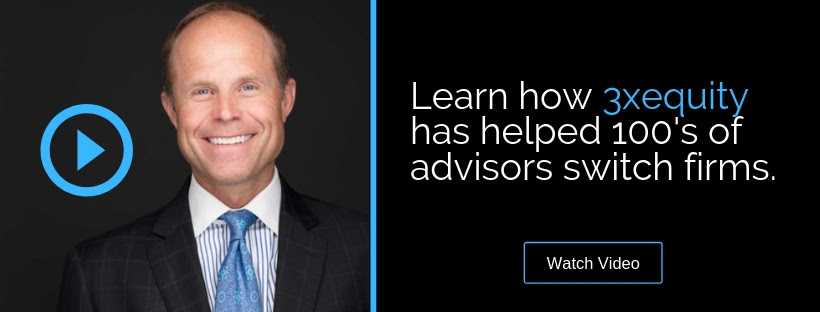Making a move to a new broker-dealer is often a strategic decision that can significantly enhance both professional success and personal satisfaction. Career-minded financial advisors may find themselves contemplating such a move, driven by the promise of better alignment with their goals and life values – not to mention the promise of a significant payday. In this blog post we explore the three key reasons behind many transitions—culture, compensation, and control—and provide insights into how each factor can influence an advisor’s decision to switch firms.
Compensation
Broker-dealers recognize they are in a battle for top talent and are willing to offer significant transition packages to attract and retain the best in the industry. These packages, often comprising higher payouts, front money, signing bonuses, forgivable loans, and enhanced grids, are at an all-time high, reflecting the competitive nature of the industry.
Transitioning to a new firm can represent a milestone moment in an advisor’s career, similar to a professional athlete securing a lucrative contract after years of demonstrated performance. This “big pay off” event is a chance for advisors to leverage their history of success for a substantial financial gain. The underlying message in these offers is clear: “you’ve earned it.” This recognition is crucial for advisors who have put in considerable effort to grow their practices and client bases.
Advisors considering a move should not shy away from negotiating for what they deserve, especially if they believe that their current compensation does not reflect their market value. However, it is essential that any new compensation package aligns with their long-term professional goals and the needs of their clients, ensuring that the transition is not just financially beneficial but also ethically sound and client-focused.
Culture
A firm’s culture is more than just its work environment; it involves the alignment of the firm’s values with those of its advisors and their clients. Advisors are increasingly targeting clients based on specific lifestyles or investable assets, requiring support from a firm that offers sophisticated technology and marketing to cater effectively to these niche markets. Furthermore, clients are becoming more vocal about their investments aligning with their political and ideological beliefs, making it essential for advisors to choose firms that uphold these values.
Leadership also plays a crucial role in defining a firm’s culture. The “tone at the top”—the ethical nature and behavior exhibited by those at the highest levels of management—can greatly influence an advisor’s alignment with a firm. A leadership that prioritizes integrity and ethical practices enhances a firm’s appeal and directly impacts an advisor’s satisfaction and alignment with the firm’s values.
For advisors seeking a deeper connection with their work and clients, the cultural fit of a firm is paramount. Those dissatisfied due to cultural mismatches, especially following broker/dealer mergers or acquisitions, may find better opportunities in more independent or smaller regional firms where their personal and professional aspirations are more likely to be met.
Control
Control over one’s career trajectory is a pivotal factor that can compel financial advisors to seek new opportunities. Changes in firm ownership, such as mergers and acquisitions, often disrupt the status quo, forcing advisors to reconsider their place within the larger organization. Such corporate changes can diminish an advisor’s sense of autonomy, prompting them to look for firms where they can regain control.
At the heart of this search for control is the desire for more flexibility in various aspects of their work. Advisors may seek firms that allow them to choose the financial products they offer, freeing them from restrictive product lines that don’t align with their clients’ needs or their professional judgment. Geographic flexibility is also a key consideration, as advisors may wish to expand their practice into new areas without being confined by their firm’s regional limitations.
Ownership of the client relationships and business branding is particularly significant. Many advisors feel that since they have built their client base through hard work and personal engagement, they rightfully deserve to own their books of business. Moreover, establishing a brand that resonates personally with them and stands distinct from their firm’s brand can be crucial for those looking to imprint their unique mark on the industry.
For advisors feeling constrained by their current firms, moving to a place that offers greater control can be liberating and empowering, providing them with the necessary environment to thrive professionally and personally.
A BONUS ‘C’ – CHOICE
Transitioning to a new firm is a significant decision for financial advisors, driven by factors such as culture, compensation, and control. Each of these reasons plays a crucial role in shaping an advisor’s professional journey. Financial Advisors would be wise to remember that they are ‘Free Agents’ with the ability to choose their path.
For those considering a change, it is important to carefully evaluate how a new firm aligns with personal values, career goals, and client needs. By making informed choices, advisors can ensure that their move leads to enhanced professional success and personal satisfaction.
A transition consultant can assist advisors in motion, answering questions, securing offers, guiding and streamlining the process, and ultimately negotiating the best deal. If you are curious, get started today by securing multiple offers all while you stay 100% anonymous.




